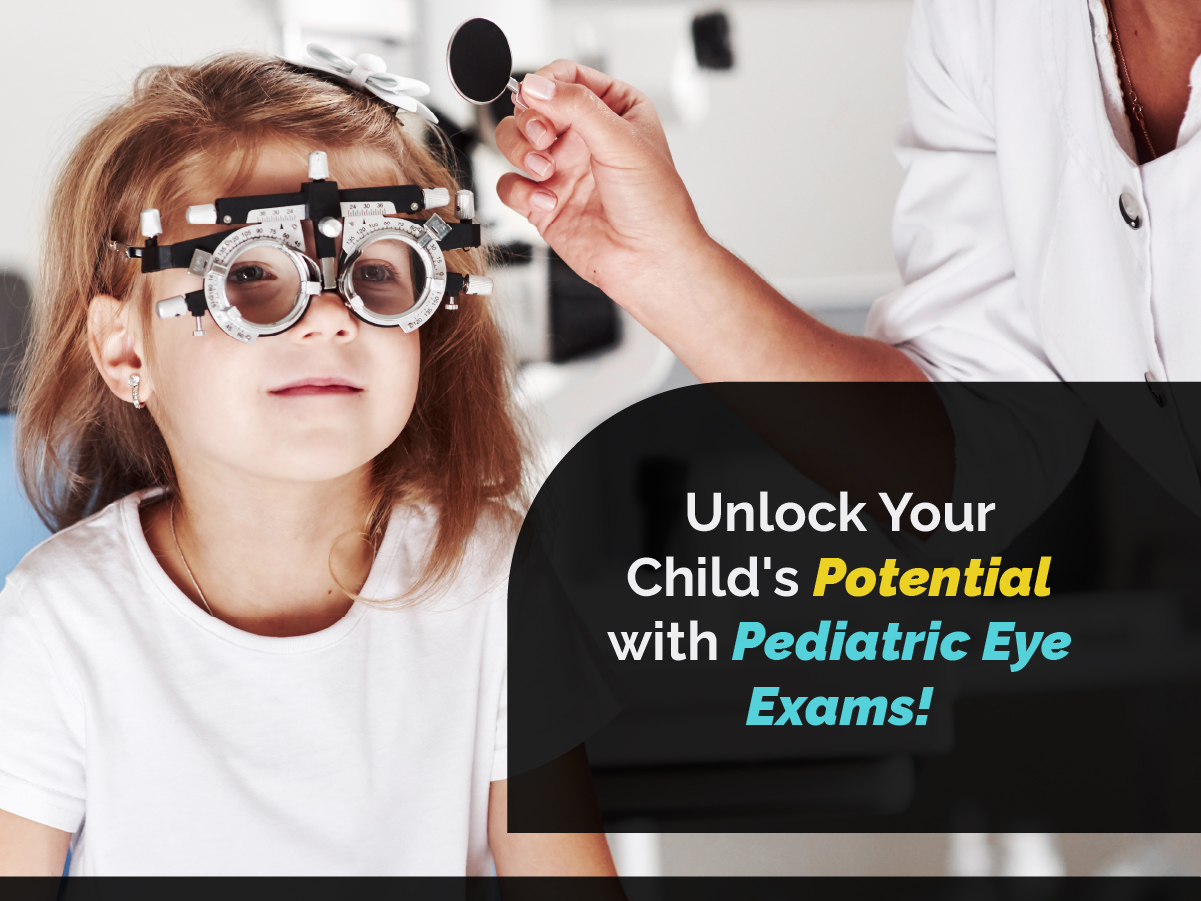
Imagine a child struggling in school, unable to keep up with their peers. Academic performance suffers, and self-esteem plummets. Now, envision that these challenges stem from an undetected vision problem that could have been identified and corrected earlier through a simple eye exam.
It's not uncommon to encounter such scenarios, underscoring the importance of regular eye exams during a child's formative years. At Lifetime Eyecare Associates, we are passionate about helping our young achieve achieve clear, healthy vision so they can do their best in school and beyond.
Understanding the Development of Vision in Children
A child's visual journey begins as they open their eyes to the world. From infancy through adolescence, a complex process unfolds, shaping their ability to see and interact with their surroundings. Critical milestones in visual development include tracking movement, recognizing faces, and developing depth perception.
Common Vision Problems in Children
- Refractive Errors: Myopia (nearsightedness), hyperopia (farsightedness), and astigmatism are common vision problems in children that can impact academic performance and overall well-being. Timely diagnosis and appropriate corrective measures, such as glasses or contact lenses, ensure children with these conditions have clear and comfortable vision for their daily activities.
- Amblyopia (Lazy Eye): Early detection and treatment of amblyopia are essential for preventing long-term vision loss in children. Prompt interventions like patching the stronger eye or using atropine eye drops can help promote normal vision development in the weaker eye, ensuring a better visual outcome as the child grows.
- Strabismus (Crossed Eyes): Early intervention in strabismus is crucial as it can prevent potential vision issues and improve the overall quality of life for affected individuals.
- Eye Diseases: While rare, certain eye diseases can develop in children. Early identification through regular eye exams is crucial to preserving a child's visual health and preventing potential long-term complications.
The Vital Role of Regular Eye Exams
Regular eye exams are crucial for children's overall well-being. A child's ability to learn effectively depends on their vision. Uncorrected vision issues can sometimes be mistaken for learning or behavioral problems, potentially leading to misdiagnosis.
Moreover, addressing vision concerns early on can enhance safety, as children with unaddressed vision problems may be more prone to accidents.
Uncorrected vision issues can significantly impact a child's self-esteem, influencing their confidence in social interactions and academic pursuits. Ensuring your child receives regular eye exams is vital to their success and overall quality of life.
The Benefit of Annual Eye Exams for Children
In addition to early childhood eye exams, annual eye exams for children offer numerous benefits:
- Early Detection of Changes: Annual exams allow for the early detection of vision changes, ensuring timely intervention and correction.
- Monitoring Vision Development: Regular checkups help monitor a child's visual development and identify any issues that may arise during their growth.
- Preserving Academic Success: A consistent approach to eye care supports a child's academic success by addressing potential vision challenges promptly.
What to Expect During a Child's Eye Exam
Navigating a child's eye exam can be a worry-free experience at Lifetime Eyecare Associates in The Woodlands. Our child-friendly approach ensures a positive and educational visit, promoting lifelong eye health.
- A Friendly Welcome: Our warm and welcoming staff creates a friendly atmosphere to ease any anxieties parents or children might have.
- Pre-Exam Questionnaire: Essential information about your child's medical history and specific concerns is gathered to tailor the exam to their unique needs.
- Visual Acuity Testing: The pediatric eye exam begins with a visual acuity test, determining their current optical clarity.
- Eye Health Evaluation: A comprehensive eye health evaluation checks external and internal eye structures, looking for signs of diseases and assessing how well the eyes work together.
- Refraction Assessment: If necessary, a refraction assessment determines the specific eyeglass prescription.
- Kid-Friendly Tools: Child-friendly tools and techniques engage your child, making the process enjoyable.
- Discussion and Recommendations: Once complete, findings and recommendations are discussed with parents, ensuring a collaborative approach to their child's eye care.
- Q&A and Education: Questions are encouraged, and we provide guidance and education every step of the way.
- Fun Eyewear Selection: Stylish and kid-friendly frames make choosing eyewear an enjoyable experience for children needing glasses.
Children's eye checkup frequency varies by age and risk factors. Typically, infants should have their first comprehensive eye exam between six and 12 months, followed by checks at ages three and five. More frequent exams may be necessary if specific risks or family history are present.
Empower Your Child's Vision in The Woodlands
As parents, your involvement in your child's eye health is crucial. Recognizing signs of vision problems, minimizing screen time, ensuring proper lighting during reading and close-up activities, and providing UV protection and adequate eyewear for sports and outdoor activities are essential steps.
An early childhood eye exam is an investment in your child's future. Understanding what to expect during the exam can help ease apprehensions and ensure a smooth experience. Prioritize your child's vision health today and schedule an eye exam with Lifetime Eyecare Associates to empower their vision and well-being.


